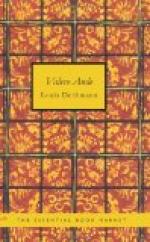In the ensuing pages I shall endeavour to give the reader a necessarily brief and cursory, glance into the subjects which will form the underlying motif of the vast and manifold deliberations which will constitute the fundamental basis of the projected course of study which will be brought under the consideration of the members of the proposed association and will constitute the schedule, as it were, of the periodical dissertations of these matters of world-wide and vital individual significance to be comprised in the Series of One Hundred Lessons.
I have been at some pains to avoid as far as possible the use of technical and professional phrases and terminology, for the express purpose of bringing within the scope of every faculty of understanding these subjects which are equally a matter of life and death importance to every man, woman and child, in all the wide and varied range of nationalities and languages which constitute so large a part of our great Republic and upon whose health and efficiency so much of our national life depends.
The great and ominous unrest, so much in evidence of late, is ample proof of a latent popular dissatisfaction with the conditions of life and it is equally significant of the prevailing nervous tension—the obvious result of malnutrition of the system—which is one of the most prominent popular features of the worry-worn denizen of today.
Life, Health, Happiness—that vital interdependent triad—are surely a preoccupation strong enough and precious enough to startle the minds of the most complacent; and it is with the object of awakening all to their possibilities—in health or in disease—of protection of the one, and hope and regeneration under the other, that the course of study has been inaugurated of which the following is but a bare outline.
MAN AS A UNIT.[A]
The human body is an accumulation of millions of separate cells, which are the bearers of life, and which in various groups form the different organs, the combined action of which constitutes our individual existence.
This existence itself is the natural issue of the existence of our predecessors, who generated the new life which will be transmitted by us and reappear in our offspring.
In like manner all the functions of the body form an endless chain in which not a single link must be faulty or missing, if healthy organic life is to continue.
This accumulation of cells, however, is by no means inactive. On the contrary, organic life is nothing but the constant dying of the old and the reconstruction of new cells; it means that we are in a perpetual condition of composition and consequently of decomposition throughout our entire being, its different parts and organs.
As soon as we are able to recognize this accumulation of cells as one individual whole and thus arrive at the idea of their absolute interdependence, we shall get rid of the prevalent idea, that the mere structural differences between the respective organs of the body make them separate and independent things which may be treated irrespective of one another in case of disease, or dealt with by different specialists.




